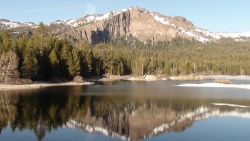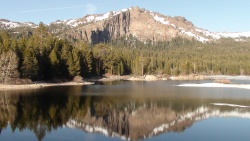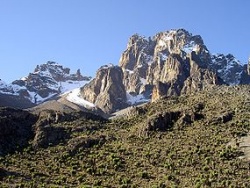From Adaptation Knowledge Networks to Adaptation Stories

Objectives for improving dissemination of climate adaptation information
1. To identify user-perspectives on the interface and content development of the innovative weADAPT / Google Earth platform
2. To identify the structures and systems of decision-making for adaptation through an evaluation of social network and social learning processes, and to assess the implications on these on implementing new collaborative / knowledge / decision tools.
3. To evaluate the effectiveness of the collaborative platform as a vehicle for engaging stakeholders and engendering wider participation in decision-making
4. To assess the impact of using the collaborative platform on decision-making processes, experiences and outcomes
Case studies
Applications of the use of this methodology are underway in Kenya and California exploring climate change adaptation knowledge networks, potential adaptation options and the very different decision making contexts – similar methodological approaches will be applied in both cases. For example, a social network approach has provided insights on the flow of this information and how this has changed over time, while ‘adaptation stories’ using Google Earth ‘fly-bys’ can describe the different socio-institutional contexts within which adaptation takes place.
California

Silver Lake, California Source: S.Bharwani
At the State level, the California study has explored several applications in Google Earth and Google Maps for scientists working on climate change science, impacts and adaptation in California. Data and information are presented in various ways, including thematic overlays, animations, scientific reports and interactive charts and tables. These layers cover topics ranging from downscaled climate projections, fire threat, landcover and habitat, population projections, and sea level rise in the bay area. For more details, please contact Vishal Mehta
At a local level, a field study is being conducted to explore how climate change is impacting local communities. The macro-level State-wide impacts and the micro-level local impacts are being described in a ‘story of adaptation’ use Google Earth technology. For more details, please contact Sukaina Bharwani.
Kenya

Mount Kenya, Source: Wikipedia
Our work in Kenya is exploring climate change adaptation knowledge networks through continued dialogue with participants from our workshop in February 2009, to find ways to improve knowledge sharing capacity and strengthen institutional links and collaboration.
A new application of the Google Earth Adaptation Layer is being developed for Kenya which will enable improved communication of high priority issues, through an ‘adaptation story’. For more details, please contact Sukaina Bharwani.
- Workshop on Knowledge Mapping and Supporting Adaptation Decisions in Kenya Tuesday 10th February 2009, UNEP, Gigiri, Kenya.
Stories of ACCCA Pilot Actions
ACCCA stands for Advancing Capacity to support Climate Change Adaptation. Funded by the EC, UNITAR and UK/DEFRA (among others), the project was implemented over 3 years and a half by SEI, START, CSAG, ENDA and other partners in 14 pilot actions located in different countries of Africa and Asia. The aim of the project is to enhance local capacity for adaptation planning. To do so, the project aimed at creating a two-way dialogue between the climate science community, policy makers and practitioners, to enhance capacity to understand climate information and incorporate it into development planning and robust decision making processes that will lead to effective adaptation actions.
To share and support the outreach of knowledge generated by the 14 pilot actions, we have crated an ACCCA Layer prototype that synthesizes the different projects, risk communication strategies developed, and climate data used by the pilot actions for adaptation decisions.
If you would like to know more about the lessons learned in the project on climate information communication and climate risk communication, please download the synthesis report here
(0) Comments
There is no content